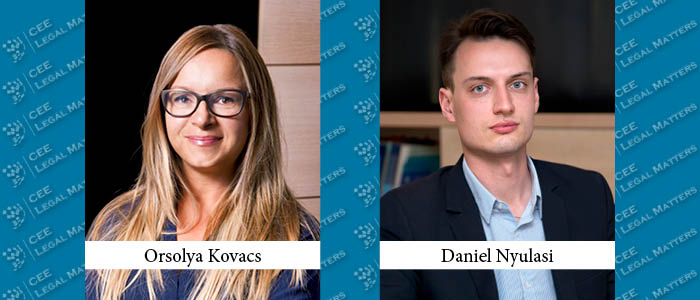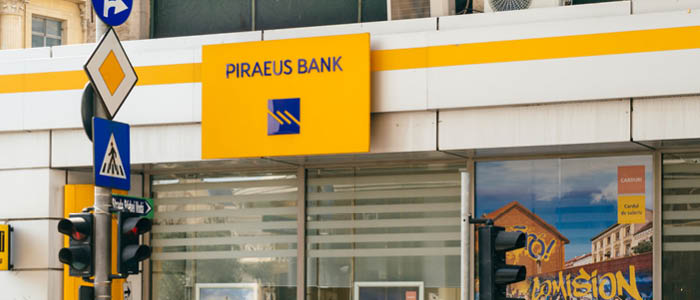On December 7th, 2016, CEE Legal Matters reported that AmRest Holdings had acquired 15 KFC restaurants and the license to operate and develop the KFC brand in Germany. We invited Dawid Ksiazcziak, Chief Legal officer for AmRest Holdings, to reflect on the KFC acquisitions.
CEELM: To facilitate this deal, did you and your team have to interact with the seller alone, or did you need to negotiate with KFC as well for licensing purposes?
D.K: Our team interacted directly with the seller (YUM!, brand owner of KFC), with whom we negotiated the acquisition of their KFC equity restaurants and new franchise agreements for the acquired stores and the development incentive agreement for entire German market. AmRest's in-house legal team for this deal apart from myself consisted of Joana Johannsen, Head of Legal Germany, and Patrycja Pruchnicka, Legal Manager of the Polish team. We were supported by a Dentons team led by Till Bushman.
CEELM: The transaction did not close immediately. Why not?
D.K: At the moment of conducting this interview, the transaction is already closed, and it happened as planned on March 1st, 2017. The main reason for delayed closing was the necessity to fulfill certain conditions precedent, such as the obtaining of merger control clearance from German authorities, re-granting personal permits issued for the target business, negotiation and execution of a transitional service agreement with seller, and so on. Also, between the signing and closing AmRest had to set up a full internal support structure in Germany to be able to smoothly take over the acquired restaurants and continue its operations without any break.
CEELM: In what way, if any, was working on these deals different from your previous acquisition of Starbucks’ German subsidiary, or, in a deal we reported on in 2015, the acquisition of the Starbucks franchises in Romania and Bulgaria?
D.K: The KFC acquisition in Germany was a so-called “asset deal” while Starbucks transactions in Germany, Romania, and Bulgaria were structured as acquisition of shares in existing companies. An asset deal structure requires a different approach to due diligence and transactional work. In essence the buyer is taking over only the assets of restaurants and related contracts plus employees and is not assuming from the seller historical liabilities related to the pre-closing period. On one hand it has the advantage of simplifying the buyer’s legal position in negotiations with the seller in comparison to share deals, while on the other hand it requires much more detailed work in certain areas. For example, as mentioned already, AmRest has to set up a full support structure in Germany (including incorporation of new legal entity) from scratch to be able to operate the acquired business. In the previous Starbucks deals it was not necessary as we bought existing companies with offices and a full support team.
CEELM: In our previous Deal 5 interview you told us that you opted for Dentons because the firm "was simply the best in every aspect we took into consideration to make a final choice of legal advisor.” For the subsequent two deals in Germany, did you run a new tender, or did you opt for the firm again based on a positive experience? If a tender, what makes their proposals stand out in your view, and, if it was a pick based on your experience, what elements did the firm excel in to make you want to use them again?
D.K: We were extremely pleased with Dentons' services in Starbucks' Romania and Bulgaria acquisitions. Based on that experience we asked Dentons to participate in our tender process for a legal advisor in Starbucks' Germany transaction. Dentons’ offer again turned out to b the best of all we received and we engaged them for the Starbucks deal. Till Bushman and his team definitely stood up to the challenge and did an excellent job — their support was vital in achieving a successful closing of this complex transaction. So, when the KFC opportunity appeared in Germany we engaged them quickly again, this time without running a tender process. Working with Till and Dentons' team on both transactions was a pleasure. Not only because they are experienced legal professionals who know all the in-and-outs of M&A work — very dedicated, always available, and extremely efficient — but also because of great personal chemistry with our in-house team and a good fit with our unique organizational culture at AmRest.
CEELM: As a CEE-based restaurant operator, what regulatory differences or similarities do you experience in doing business particularly in Germany?
D.K: Actually, from my legal perspective I see many similarities in doing business in Germany and other CEE countries we operate in. As result of the unification of laws within the EU, many legal aspects of operating the restaurant business are similar, which enables our in-house legal teams in various European countries to share best practices and legal solutions freely. A contract template or legal procedure developed in Poland or Czech will usually work quite well, with some modifications, also in Germany, Austria, or Hungary — and vice-versa. For me the biggest difference between Germany and other CEE markets is the quite heavily-regulated labor law and the role of works councils in day-to-day operations and making business decisions.
From a purely transactional/deal perspective, having recently made several transactions across Europe (apart from those already mentioned above also acquisition of Pizza Hut equity and franchised restaurants in France, the acquisition of 42 KFC restaurants in France, and the acquisition of Pizza Hut in Germany) I find doing M&As in Germany to be very efficient, well-organized, and transparent from a legal standpoint.



























